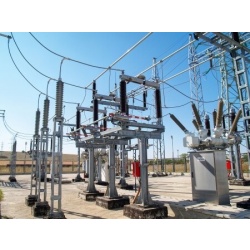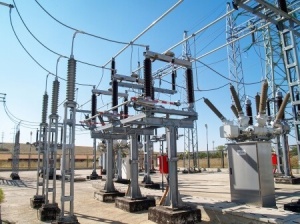
Letter to the Editor: "Fear not. Opportunity awaits"
(Lyle Luzum of Decorah has submitted the following Letter to the Editor):
"I understand the lure of not rocking the electrical utility boat. Everyone wants stable electrical service and we have that. And there is comfort in not "fixing" something that doesn't appear broken. But I urge people to see beyond fear, uncertainty, and doubt. There is great opportunity because it actually IS broken.
The proposal before us is whether to look into owning the local electrical grid. That's it. So one question (and fear) is how we could maintain that. Well, 136 other Iowa municipalities are able to do so, as can 2000 nationwide. And most of the State is served be Rural Electric Co-ops, all with local expertise. Running a local grid is not a secret sauce that only our provider knows about. Electric utilities all know how to do this, they help each other after disasters, and they all provide good local jobs. We will, too. This fear is easy to imagine, but unfounded. Why do we think Decorah is uniquely incapable while so many others can do this?
Another fear is the cost – is it $5M, $20M, or $50M? It doesn't matter. Rate paying customers always pay all the costs, no matter who owns the local grid. If Alliant says the price is $20M, then they will have to set rates so that we pay off that $20M. If it is $5M, then rates will have to pay for that. Equipment does not increase in value once installed. It depreciates, and we have paid for that part already. Whatever Alliant's value for the local grid is after depreciation, that is what we will pay for in rates regardless of ownership. Taxes won't pay for the purchase and upgrades if we own it. Investors won't pay for upgrades and new equipment if Alliant owns it. We will, through our rates.
Alliant's line is "Municipalization = Higher Rates". This cannot actually be true. Alliant will not determine what we would pay to buy the local grid. The Iowa Utilities Board will analyze and approve a value based on actual information, not estimates or unsupported black box statements from Alliant. Once they do that, THEY will determine if our purchase makes financial sense. If not, they will reject it. If it makes financial sense, then they will judge whether there are additional benefits that are in the pubic interest before approving the sale. And then we still must decide to go forward. Nothing is automatic. Because Alliant's long-term franchise contract with Decorah is ending, this is our one opportunity to open the black box of mystery numbers that are electrical rates and see what's in there. Why would we not want to at least find out? That is what this vote is asking – permission to see if it is feasible.
Electrical service consists of 1) the local grid, 2) transmission lines from power plants to the local grid, and 3) power plants. So let's find out what each of these costs. Right now, it is a mixed jumble and we can't tell local grid costs from remote power plant payoff costs. And this gets to the question of "is it broken?".
If by "broken" you mean simply getting power when you need it, of course it's not. But that's a low and insufficient bar. We are in a new era of electrical generation and storage and the current business model for utilities IS broken because the old (current) model depends on ever increasing electrical usage to offset the cost of new or existing pre-renewable power plants. The model requires wasteful use and sees energy efficiency and renewable, customer owned generation and/storage as a threat. Alliant already squelched our community solar project proposal. We should expect no change of heart. Being primarily sellers of electricity, competition is a threat in this business model.
If we owned our grid, we could prioritize energy efficiency. Because we would be purchasing outside power, it would be in our interest to minimize how much we buy. All money spent purchasing outside power leaves the community. Our money is our export. The non-local electricity is our import. If we owned our local grid, we could choose where we get our power and what mix of fossil fuels and renewables we would import to our grid.
Investors do not pay for power plants or new smart meters. We do in our rates. Investors simply get the profits that they are guaranteed (through our rates) because they own shares of a legal monopoly with no competition. Currently, Alliant needs us to pay for their power plants. We are captive to the needs of their investors' dividend checks. The duty of care for a public corporation is to their shareholders, not to their customers. That is the way corporations work. Don't pretend otherwise. Do our goals align? Or could a local board better reflect our community goals? That is the real question.
Finally, I am surprised that otherwise business-savvy people don't see the opportunities for self determination of our energy goals, local investment in renewable production, and the benefits that come from not exporting all of our energy dollars. If we can increasingly provide right-sized local production and storage, we can offer customers of all sizes the opportunity to have a stake in clean, affordable electricity without paying transmission costs; and all that money can stay in the community. Choice like this is important and will be increasingly possible, technically, in the near future. In fact, this more in line with our capitalist system than being tied into a non-competitive monopoly system like we are now.
The local grid is, like the street system, a logical monopoly to minimize wasteful duplication of infrastructure. But it is just a means of bringing a selection of product (electrical sources) to our doors. Let's own our grid so we can minimize what we import, maximize what we produce ourselves, and choose what kind of power we buy.
Fear not. Opportunity awaits. Vote Yes so we can as least see into the black box and choose our own energy future."
Site designed and maintained by Iroc Web Design Services©.
Your Small Business Web Design Solutions.™


